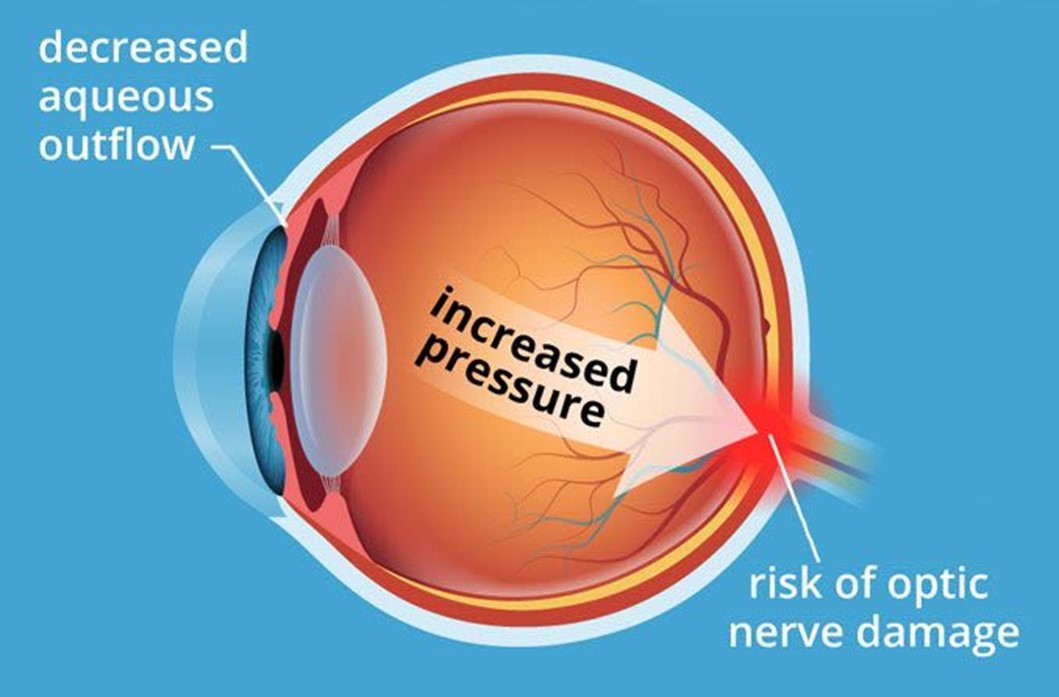A nurse is caring for a client following cataract surgery. Which of the following comments from the client should the nurse report to the client's provider?
"It's hard to see with a patch on one eye. I'm afraid of falling."
"My eye really itches, but I'm trying not to rub it."
"The bright light in this room is really bothering me."
"I need something for the pain in my eye. I can't stand it."
The Correct Answer is D
Choice A reason: This is incorrect because this comment does not require reporting to the client's provider. It is normal to have reduced vision and an increased risk of falling with a patch on one eye after cataract surgery. The nurse should reassure the client, provide assistance with mobility, and educate the client on safety measures.
Choice B reason: This is incorrect because this comment does not require reporting to the client's provider. It is normal to have some itching and discomfort in the eye after cataract surgery. The nurse should commend the client for not rubbing the eye, as this can cause infection or damage to the surgical site. The nurse should also administer anti-inflammatory eye drops as prescribed and instruct the client on how to apply them.
Choice C reason: This is incorrect because this comment does not require reporting to the client's provider. It is normal to have increased sensitivity to light in the eye after cataract surgery. The nurse should dim the lights in the room, provide sunglasses or a shield for the eye, and educate the client on how to protect the eye from bright light.
Choice D reason: This is the correct answer because this comment requires reporting to the client's provider. Severe pain in the eye after cataract surgery can indicate a complication such as infection, inflammation, bleeding, or increased intraocular pressure. The nurse should assess the eye for signs of redness, swelling, discharge, or bleeding, and report the findings and the pain level to the provider. The nurse should also administer analgesics as prescribed and monitor the pain relief.

Nursing Test Bank
Naxlex Comprehensive Predictor Exams
Related Questions
Correct Answer is ["A","B","D"]
Explanation
Choice A Reason: This is correct because melanoma is a type of skin cancer that arises from melanocytes, which are cells that produce pigment. Melanoma lesions are often irregular in shape and color, and may have different shades of brown or black.
Choice B Reason: This is correct because melanoma is a very aggressive and invasive type of skin cancer that can spread quickly to other parts of the body through the blood or lymphatic system. Melanoma has a high mortality rate if not detected and treated early.
Choice C Reason: This is incorrect because warm and red skin around a lesion may indicate inflammation or infection, but not necessarily melanoma. Melanoma lesions may have other signs, such as bleeding, itching, or ulceration.
Choice D Reason: This is correct because melanoma is associated with exposure to ultraviolet (UV) radiation from sunlight or artificial sources, such as tanning beds. UV radiation can damage the DNA of melanocytes and cause them to grow abnormally.
Choice E Reason: This is incorrect because melanoma lesions are usually not painful unless they are ulcerated or infected. Pain may be a sign of other types of skin conditions, such as burns, blisters, or cuts.
Correct Answer is D
Explanation
Choice A Reason: To administer medications and electrolytes is not the best reply for why the client will need the NG tube, because this is not the primary purpose of the NG tube in this case. The NG tube is mainly used to relieve gastric distension and prevent vomiting and aspiration. Medications and electrolytes can be given through the IV route.
Choice B Reason: To dilate the stomach as a presurgical preparation is not the best reply for why the client will need the NG tube, because this is not a valid indication for the NG tube in this case. The NG tube is mainly used to relieve gastric distension and prevent vomiting and aspiration. Dilation of the stomach is not a goal of presurgical preparation, but rather an adverse effect of gastric obstruction.
Choice C Reason: You will not be able to eat for several days is not the best reply for why the client will need the NG tube, because this is not a complete or accurate explanation of the NG tube in this case. The NG tube is mainly used to relieve gastric distension and prevent vomiting and aspiration. The client will not be able to eat for several days because of the NPO diet, which is necessary to rest the inflamed peritoneum and reduce the risk of complications.
Choice D Reason: To remove secretions and decompress your stomach is the best reply for why the client will need the NG tube, because this is a clear and correct explanation of the NG tube in this case. The NG tube is mainly used to relieve gastric distension and prevent vomiting and aspiration, which are common symptoms of acute peritonitis. By removing secretions and decompressing the stomach, the NG tube can reduce pain, inflammation, and infection in the abdominal cavity.
Whether you are a student looking to ace your exams or a practicing nurse seeking to enhance your expertise , our nursing education contents will empower you with the confidence and competence to make a difference in the lives of patients and become a respected leader in the healthcare field.
Visit Naxlex, invest in your future and unlock endless possibilities with our unparalleled nursing education contents today
Report Wrong Answer on the Current Question
Do you disagree with the answer? If yes, what is your expected answer? Explain.
Kindly be descriptive with the issue you are facing.
